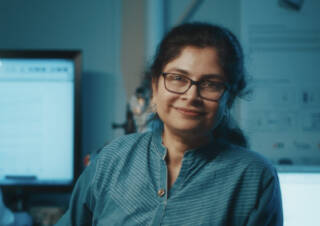Tampere University is pleased to announce new funding for cryogenic memory and in-memory computing research in the pioneering Advanced Cryogenic Technologies for Innovative Computing (ArCTIC) project. ArCTIC is a European project that aims to revolutionise the next generation of computing and quantum systems. Funded by the European Union and Business Finland, the project marks a major step forward in the development of cryogenic technologies, which are essential to connect and control scaled-up quantum computers.
ArCTIC brings together an impressive consortium of 36 European partners. Large industries, Small and Medium-sized Enterprises (SMEs), Research and Technology Organizations (RTOs) and Universities are joining forces to develop Cryogenic Technologies for next generation of Computing.
– The objective of ArCTIC is to bridge the void between quantum processors and their control electronics. ArCTIC will develop scalable, reliable, innovative control electronics for cryogenic quantum processors. The (cryogenic) technologies under development in ArCTIC will also have applications in several different fields from sensing to communication and will therefore lead to important cross-fertilization that will strengthen the forming European ecosystem on cryogenic classical and quantum microsystems. ArCTIC intends to establish a complete and comprehensive European supply chain for cryogenic photonics, microelectronics, and, in general, cryo-microsystems around the emerging quantum computing industry and different cryo-enabled ICT applications, explains Sayani Majumdar, Associate Professor and project leader at Tampere University.
Tampere University is leading the Cryogenic Memory and In-Memory Computing task in the project together with Industrial partners like Intel, Picosun/Applied Materials, and Okmetic, RTOs like Fraunhofer IPMS and VTT and academic partner like Lund University.
With an impressive budget of approximately 40M Euros, of which over 7M Euros are allocated to Finnish partners, ArCTIC is set to make substantial contributions across the board.
– Within this project, we will be developing scalable cryogenic memory technology that can be directly integrated with standard Complementary metal oxide semiconductor (CMOS) electronics, able to operate within a broad temperature range and with ultra-low power consumption. This development would bring computing and artificial intelligence (AI) close to the quantum world and will also disrupt space technologies. This is going to have a tremendous business potential in near future, adds Majumdar.
Associate Professor Sayani Majumdar leads a research group at Tampere University, focusing on the development of novel hardware for Beyond-CMOS computing. This research spans the domain of sustainable materials, emerging nanoelectronic devices, and their integration into beyond von Neumann computing systems. These systems, such as computation-in-memory and neuromorphic platforms, aim to enable energy-efficient and intelligent computing and sensing.

Contact person:
Sayani Majumdar
Associate Professor (tenure track), Thin Film Electronics

